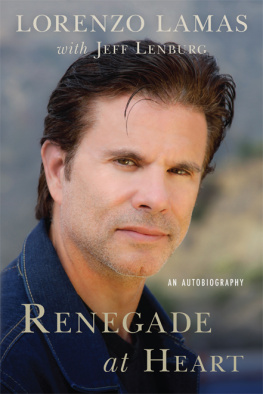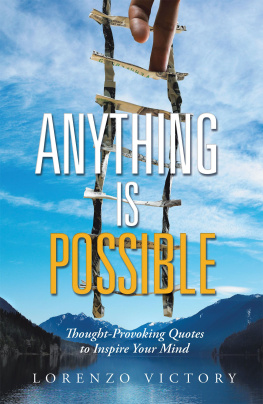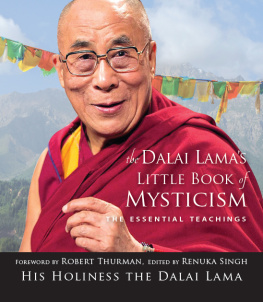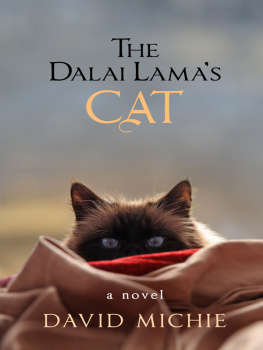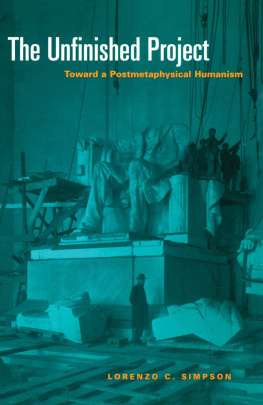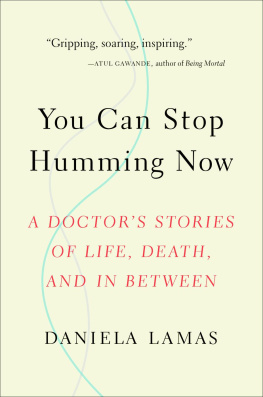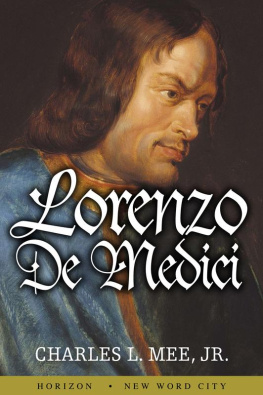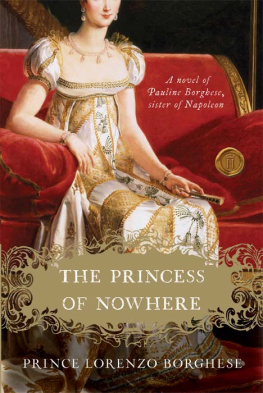P EOPLE ASSUME just because you are the son or daughter of a celebrity, you spend your whole life around other rich and famous people, living in the upper echelon of society. You have it easy. In my case, nothing could be further from the truth. As I would come to learn, fame and fortune never solve. My parents are examples of that.
Both are highly talented professionals so busy working and so preoccupied with their careers that they never achieve true, lasting happiness together. Surely they have the right intentions when they marry, buy a home together, plan a family, and, of course, have me. To the world, they are Hollywoods happiest couple. Yet, as I discover at a very tender age, just because you make plans doesnt mean they will always work out as you hope.
My father, known to the world as Fernando Lamas, is a rakishly handsome, flamboyant, and athletic man who loves life and beautiful womennot necessarily in that order. Born on January 9, 1915, in Buenos Aires, Argentina, he grows up in a country imperiled by political and economic unrest and yet rises above it all. At a young age, after developing a love for theater, he studies drama at school. Later, he abandons his studies for athletic pursuitshorse riding, fencing, boxing (winning the middleweight amateur title), and swimming (becoming the South American freestyle champion in the 1937 Pan-American Games). While still in his teens, he returns to his first loveacting, appearing onstage, then on radio, before making his first motion picture at the age of twenty-four. By 1942, he establishes himself as an Argentine cinema celebrity, proudly starring in over a dozen pictures, producing six and directing two, and living up to his on-screen reputation as a ladies man.
With a natural eye for beauty, Dad holds true to a basic philosophy when it comes to women, based on his old-world values: Women are the same all over the world, and I say God bless them, he good-naturedly explains to a reporteralthough with some differences, he points out: American women are slightly different from Latins because they have more freedom. I take my hat off to them; the women here have earned their position of equality with men. They can influence men by direct means, whereas Latin women cannot. The Latin women have to remain in the home, and the man is the master. Whatever influence they have must come by indirect means.
Brought up to believe that a womans place is in the home, Father is attracted to women with like values. In 1940, he falls in love with and marries fellow Argentine actress Perla Mux, who costars with him in fourteen films from the late 1930s to the early 1950s. The union lasts four years, producing a daughter, Christina, before ending in divorce. Then, in 1946, he marries a second time to Lydia Barachi. Six years later, in September 1952, they split after having a second daughter, Alexandra (Alex).
In 1950, Dad flees to Hollywood to appear in a supporting role in his first American feature for Republic Pictures, The Avengers, before signing a contract with Metro-Goldwyn-Mayer to star as a romantic lead in English-speaking movies. After his MGM film debut in Rich, Young and Pretty with Jane Powell in 1951, he quickly becomes one of the most promising Latin actors since Rudolph Valentino and Ramn Novarro, as he climbs his way to international stardom. My fathers storya foreigner with a foreign name and accent making something of himself in an alien landbecomes a great example to me. It teaches me an important lesson: If you work hard and pay your dues, almost anything is possible.
Despite his success, my father is realistic about how fleeting fame isa lesson he later imparts to me when I become an actor. Hollywood is a momentary place, he says, and I feel this is my moment. I like it here, and Id like to stay. But perhaps two years from now, some fellow in the balcony of a theater in Kansas City will get up and say, Aw, Im getting tired of seeing that guy on the screen. Six other people might join him and that would be the beginning of the end.
Long before I am a twinkle in my fathers eye, Dads romances with many of his female costars become well-publicized affairs. His torrid relationship with tempestuous platinum-blond legend Lana Turnersparked during their making of MGMs The Merry Widow (1952)makes national headlines as the thrice-married actress seeks to make my father husband number four. The press turns their affair into a carnival; the two lovers are unable to even go out of town in order to retain some semblance of privacy. Finally, in October 1952, they call off plans to marry, although three months later Lana goes ahead and divorces her then-husband, wealthy sportsman Bob Topping, when rumors resurface that my father and she still might wed.
While on loan to Paramount in 1953 to star in Sangaree, a 3-D Technicolor drama for Pine-Thomas Studios, Dad meets his match. He falls in love with his luscious, flaming redheaded costar: my mom, Arlene Dahl. He is immediately attracted to her softness, the thing he looks for most in a woman. Mom possesses that quality and more, and the fact that her father has raised her with that same old-world philosophy about women makes them a perfect match.
Mom is a Minneapolis native of Norwegian descent who worked various jobs through high school and was active in local theater groups before embarking on a show-business career. After starring on Broadway and in two features for Warner Bros., she finds her greatest success at MGM, just like my father. She costars as the female love interest in many successful feature films for the studio, including The Bride Goes Wild (1948) with Van Johnson and Three Little Words (1950) with Fred Astaire.
Mom becomes Dads steady the same year MGM loans them out to costar in their second Pine-Thomas Studios film together, the independent romantic adventure for Melson Pictures Corp., The Diamond Queen. At the same time, my father is seeking his release from his MGM contract after more than four years in the studios service. Dad and Arlene are the talk of the town and are treated like Hollywood royalty everywhere they go. Their union does create quite a stir with the media because Mom is not yet divorced from her first husband, actor Lex Barker (who, after divorcing Mom, dates Lana Turner, the woman Dad almost married), and because Father is eleven years her senior.
Their relationship is contentious and rocky during their two-year courtship and even after I am born, as evident in this exchange with a reporter during a November 1953 interview:
How about some pictures kissing her? the photographer says to the reporter.
In no mood to act lovey-dovey, Mom, exhausted from her stage performance the night before with Jos Ferrer in Cyrano de Bergerac, turns away from Dad, who smooches her on the cheek and announces, The patient will live!
After considerable coaxing, Mom eventually complies after the reporter asks her, What plans have you after this show?
I guess to get a good rest.
Might as well quit fooling around, the reporter adds. Do you two have any plans to get married?
Youll be the first one to know it, Dad says with an unctuous grin.
Aw, tell her first, the reporter jokes.
The reporter excuses himself and pulls Dad outside. He asks him the same marriage plans question privately.
Dad says, We may. Were thinking it over carefully.
Are you free to marry? the reporter asks.
Of course. Since October!
The reporter cracks a smile. Sorry, but I cant keep up with you guys.
Wait a minute! Dad says seriously. One marriage and one divorce aint bad! Well let you know.
On June 25, 1954, after deciding they cannot live without each other, they quickly marry in a simple ceremony at the Last Frontier Hotels Little Church of the West. Former tennis champion Gene Mako and his wife, Laura (Larry), serve as best man and matron of honor.

